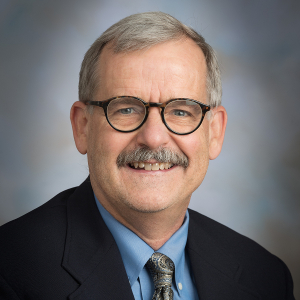
Timothy K. Gates, PhD.
- (970) 491-5043 (Office)
- timothy.gates@colostate.edu
- Website
Timothy K. Gates, PhD.
- (970) 491-5043 (Office)
- timothy.gates@colostate.edu
- Website
Professor
Civil and Environmental Engineering
Fields of Expertise
Hydraulics, Irrigation and Drainage
Areas of Interest
Hydraulic and water resources systems engineering, Monitoring and modeling of Irrigated stream-aquifer systems, Shallow groundwater flow and water quality, Open-channel flow systems
Biography
Timothy K. Gates is a water resources systems analyst and a Professor of Civil and Environmental Engineering at Colorado State University. His research focuses on how water resources systems impact and are impacted by irrigated agriculture and has included field monitoring, modeling, and analysis of shallow groundwater flow and salt transport; management of water quality (especially salinity, selenium, uranium, and nutrients) for irrigated agriculture; drainage of salinity‑affected regions; multi‑objective river basin planning; stochastic simulation and optimization of water resources systems; and field monitoring and evaluation of irrigation and drainage systems. Dr. Gates has directed or co-directed research and training projects with total funding of over $11 million over the last 30 years. He has taught academic courses in open‑channel flow, fluid mechanics, hydraulic engineering, hydraulic structures/systems, hydrology, groundwater engineering, and solid dynamics. In addition, he has served as an independent consulting engineer with the United States Agency for International Development; the United Nations Develop. Program; Camp, Dresser & McKee, Inc.; Keller-Bliesner Engineering; D’Appolonia Environ. Services; the Denver Water Dept., the Governance Committee of the Platte River Cooperative Agreement, Devon Energy, Pennaco, the Riverside Ditch Company, ARCADIS & GM, Greg Lewicki and Associates, Pueblo Wastewater, Boxelder Sanit. District, Central Mutual Insurance Co., Rocky Mountain Environ., and Pueblo Board of Water Works. Labor Coalition on projects related to irrigation-and-drainage hydraulics, river hydraulics, seepage from earthen channels, salinization of irrigated agricultural regions, water quality for irrigated agriculture, irrigation-induced pollutant loading to rivers, modeling of open-channel flow, and river-basin modeling. He has designed and conducted numerous short courses and special training programs in open‑channel flow, irrigation and drainage engineering, and groundwater. Dr. Gates spent a total of about four years in Egypt working on various irrigation projects. He also has consulted in India, Sri Lanka, Australia, and Pakistan on irrigation and water resources projects and has presented visiting lectures on these subjects in China at Wuhan University and at the Beijing Institute of Technology and on hydraulic structures and systems at the Water Resources University of Vietnam.
